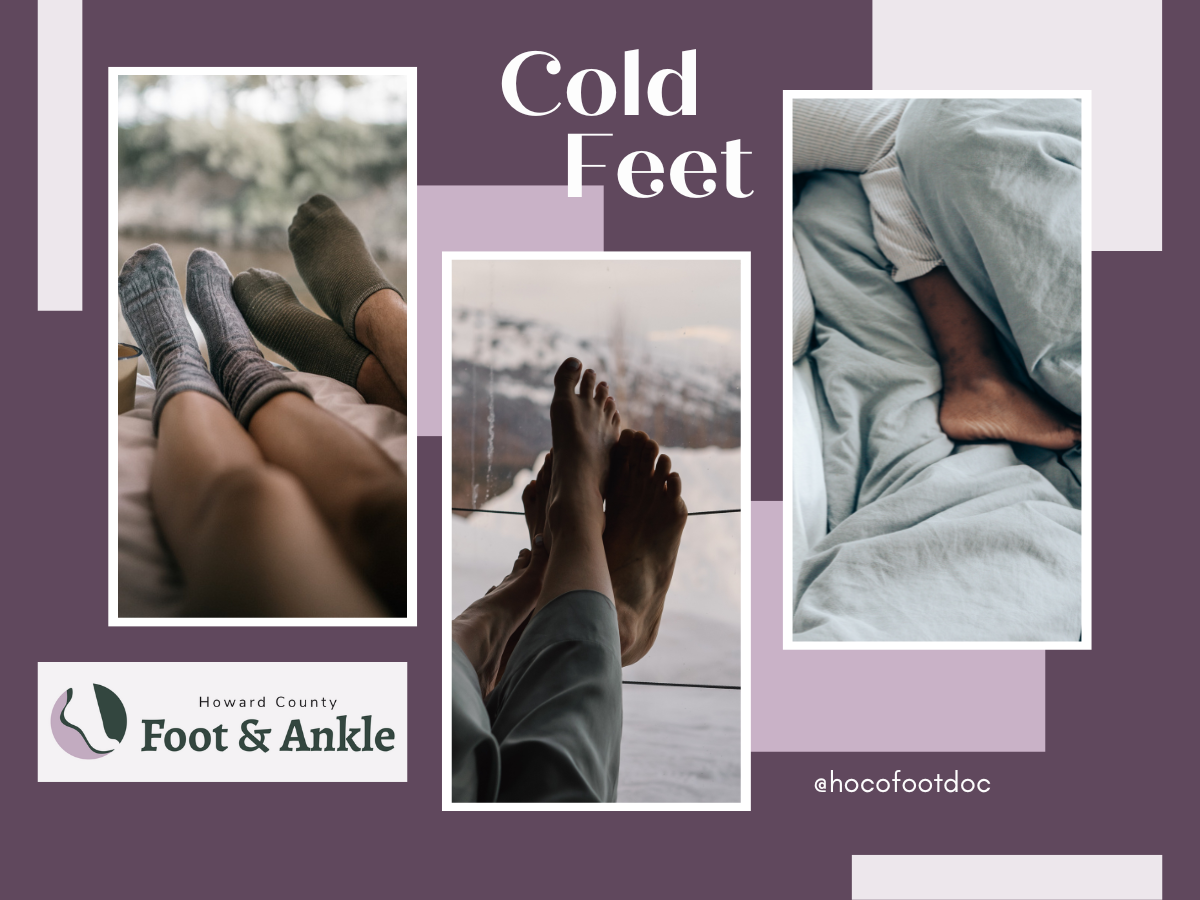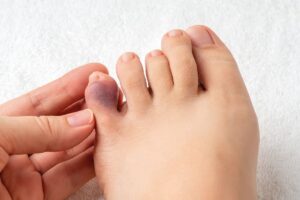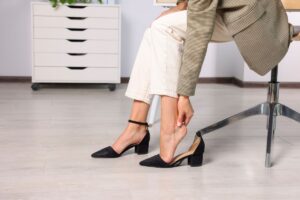Are your feet cold? Have you tried wearing slippers at home? Do your feet remain cold afterwards? Read on to find out our suggestions about wearing slippers and what your cold feet could mean.
Who loves wearing slippers? Or house shoes? Or moccasins? Whatever you choose to call them, many people enjoy warming up their feet, or simply not walking around barefoot, by wearing a pair of slippers. Do we recommend doing this? Yes! However, finding the right pair can be tricky and you might need to try a few out before finding your “sole” mate. Patients with neuropathy are encouraged to wear slippers around the house to avoid unnecessary injuries. If you have pain when walking barefoot, chances are, you too would benefit from a pair of slippers at home.
Here are a few tips to ensure you make the right decision. Ideally, you’d find a pair with arch support, although these are hard to come by. Depending on your circumstances, it may be best to have a pair that has both closed toe and a closed heel to make it easier to walk in. You don’t want them to be too loose so they don’t make you trip but obviously, you still want them to be comfortable. Many are made with synthetic materials that don’t allow your skin to breathe properly, so looking at the material is also important. Cotton is our number one choice for the inside of the shoe. Lastly, finding a slipper with a rubber sole is a good idea so they aren’t too slick while walking around inside.
Are your feet still cold? Often a temporary problem, cold feet can sometimes be a cause for concern. There are many other ways to warm up your feet. You can wear thicker socks, use a heated blanket or heating pad, and even exercise. But what if your feet are always cold, even when it’s hot outside? Let’s take a closer look at some medical conditions that can cause chronic cold feet.
Raynaud’s Disease
People affected by Raynaud’s Disease (often younger women) are very sensitive to colder temperatures. The blood vessels constrict (vasospasm), limit blood supply to the skin, and can cause pain. This leads to changes in the color of the skin and extremities feeling numb and painful. Sometimes a severe case may lead to a diagnosis of an autoimmune disease or other underlying health condition.
Poor Circulation
Your feet are the furthest body part away from your heart. This can make it difficult for blood to be pumped to and from them. You can exercise more, sit for shorter lengths of time, and quit smoking to help improve your circulation. Other underlying health conditions can also cause poor circulation, so it’s important to see a doctor if you are noticing a problem. Poor circulation can cause your toes and areas of your feet to change color, often white and purple or blue. Check your feet regularly to see if you notice any changes.
Other Causes
Chilblains occurs when the skin is repetitively exposed to very cold air. This causes inflammation of small blood vessels that is very painful. Anemia is a lack of healthy red blood cells which prevents enough oxygen from being taken to the body’s tissues. People with anemia often suffer from cold feet and hands due to the lack of poor circulation. If you have diabetes, which also causes poor circulation, you may have diabetic neuropathy. Signs of neuropathy include cold or numb hands or feet. Hypothyroidism is a condition that prevents enough thyroid hormone from being released. Several patients also report cold feet when they have this condition.
As you can see, there are several medical conditions that can cause you to have cold feet. Maybe it’s winter and you have a reason to have cold feet or maybe you need to make an appointment at our office to check for other underlying health conditions.
At Howard County Foot and Ankle, we treat everything from warts and ingrown toenails to flatfeet and heel pain. Many people come to us for diabetic foot care or simply because they have foot pain or ankle pain and don’t know the cause of it. We handle emergencies such as fractures and infections as well. Dr. Bui performs a wide variety of surgeries and specializes in reconstructive surgery of the foot and ankle. You won’t find a better foot doctor than our highly skilled and highly qualified, Dr. Christina Bui! Call or email us to ask any questions you might have. We would love to be your go-to Podiatrist!





